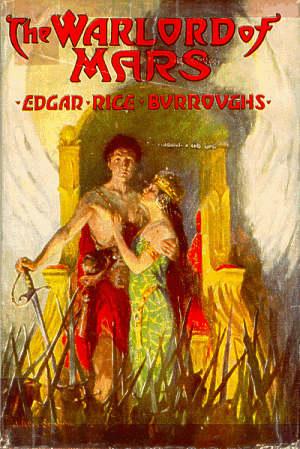29 April 2005
RDF
Facinating discussion on how RDF allows for missing data (missing is not broken) and provides a real flexible platform for future semantic systems:
RSQ: Really Simple Querying?.
28 April 2005
NetKernel (1060 Research)
In a facinating article on 1060 Netkernel Peter Rodgers explains what it is and where it came from: XML.com: Introducing NetKernel.
UPDATE 2005-05-01 The author Peter Rodgers of this article contacted me to advise me that the XML.com had an editorial mis-fire yesterday, and provided some incorrect information about the article. I've updated the information in the main posting with the changed author, title and URL. Looks like the problem was incorrect linkage of content with header metadata (author/title) and the article is what I had read, just wrongly atributed, and it's still facinating! There's an on-line discussion forum for those interested: Discussion Forum.
Metaphor for Dynamic Typing: Traffic Management in India
Sean McGrath has posted an informative article musing on traffic management in India: ITworld.com - Naked programming on naked street. The argument is that, although it sounds crazy, the best way to get things done is to have a free for all and just see what happens! Works for me, sometimes.
27 April 2005
Ireland 15th in e-Readiness Survey
Electric News notes ElectricNews.net:News:Broadband leads Ireland to 'e-readiness'. Ireland has moved up one place in the rankings produced by the Economist Intelligence Unit rating countries on their "e-Readiness".
26 April 2005
Onfolio
whatever: Onfolio can now sync with Bloglines Looks like this provides a useful way to integrated desktop and web-based RSS-feed browsing.
24 April 2005
Analysing the Sales of Computer Books
In O'Reilly's new Radar RSS aggregation Tim himself has published an interesting analysis of computing books sales 2003-2005: O'Reilly Radar >Book Sales as a Technology Trend Indicator. This highlights some very interesting high level and low level trends: the computer book sector now seems to be on the up again; perl and python books are both declining, python is catching up on perl. Well worth a wee look :-)
21 April 2005
HTTP GET and POST
Jon Udell's article End HTTP abuse | InfoWorld | Column | 2005-04-20 | By Jon Udell descibes a criticism of some popular web-based services for using GET when they should have used POST (because there were side effects that changed data), thus they broke the RESTful rules. It is intesting that even in the very simple space of HTTP (where there are only four possibilities: GET, POST, PUT and DELETE) popular services (Bloglines, Flickr, and del.icio.us) don't follow the basic rules for RESTful services. Jon argues it may be because the lightweight programming toolkits (e.g. Python, Perl and JavaScript) support GET more easily than PUT (and he gives examples of what he means here). So potentially these services were simply trying to make it as easy as possible for people to integrate with their services, and the fault lies in the toolkits that should make it even simpler to use POST than is is now, thus removing any excuse for not following the RESTful rules.
20 April 2005
Vint Cerf on Internet Chalenges
Phil Windley reports on a lecture by Vint Cerf (one of the inventors of the protocols that created the Internet, and recently awarded an ACM Turing Award in recognition of his contribution to Internet architectures) on the challenges for the Internet: Phil Windley's Technometria | Vint Cerf on Internet Challenges.
The comments range for high level critiques of Computer Science fundamental research to lower level practical issues facing Internet service developers.
Papal Domains for Auction on eBay
Now that we have a pope the fun begins: Netcraft: Papal Domains for Auction on eBay, Sedo
It didn't take long for popesquatters to try and cash in on domains related to the new pope, Benedict XVI. The PopeBenedictXVI.com domain is for sale on eBay, with a starting price listed at $100,000, and a "buy it now" price of just $250,000.
Social Bookmarking: To Tag Or Not To Tag?
This is an excellent article on the various social bookmarking tools available and why it is worth using them: Social Bookmarking Tools (I): A General Review
Google Maps UK & Ireland
Google Maps for the US has had a big impact showing what is possible with good map coverage linked to a web infrastructure.
Now they've lauched a beta version for the UK and Ireland Google Maps UK and More (Google Weblog) but the level of detail on the zoomed in maps is still very poor. Hopefully this can be improved, and can create the same buzz that it has in the US.
17 April 2005
Edgar Rice Burroughs: Barsoom

I have recently been re-reading a seminal science fiction series that I first read in my early teens. It is always interesting to revist such books. Now, I know that these pulp fiction books, originally written (and often published in serialised form) in the period 1911-1943 have been critiqued for their implicit sexism and racism, and for naive views of politics. I will certainly not seek to defend them against such charges! Nevertheless, I associate them with my childhood pleasure of reading a good action yarn, a real page turner. Now the first three books in the Martian (or Barsoom as Burrogh's natives call it) series have very simple "rescue the girl" plots, all involving the hero John Carter of Mars, who becomes Warlord of Mars by the end of the third book. The fourth features his son, and the fifth (the one I'm just about to start) I remember as having the most satisfying plot, involving an early version of a live chess match where the pieces must fight for control of the square. Burroughs of course invents his own version of chess for this, called jetan, played on a board with 100 squares coloured yellow and black. Anyone interested in the history of science fiction or fantasy should read at least this one book in the series, if not all 11 books!
The Internet seems to have a good few resources on Barsoom, the coolest being a Barsoom Map mapping Burroughs' locations to modern maps of Mars:
- Mars in the Mind of Earth: Books: Burroughs, Edgar Rice
- John Carter of Mars (source of the image above showing a 1st edition cover of the third book in the series, more tasteful that some images used for covers in the series :-).
- Listserv Portal Site (based on long running email List of Edgar Rice Burroughs).
- Maps of Barsoom
- IMDB Link on Film of First Book due out 2006!
Here are links to the 11 books in the series at Amazon.co.uk (various paperback editions):
- A Princess of Mars
- Gods of Mars
- Warlord of Mars
- Thuvia, Maid of Mars
- Chessmen of Mars
- The Master Mind of Mars
- A Fighting Man of Mars
- Swords of Mars
- Synthetic Men of Mars
- Llana of Gathol
- John Carter of Mars
The WikiPedia entry on Barsoom usefully points out "The American copyright of the five earliest novels has expired, and they can be found on a number of free e-text sites. The Australian copyright of the remainder, not including John Carter of Mars (1964), has also expired and they too can be found online."
- Free eBook of A Princess of Mars (http://www.gutenberg.org/etext/62) at Project Gutenberg
- Free eBook of The Gods of Mars (http://www.gutenberg.org/etext/64) at Project Gutenberg
- Free eBook of Warlord of Mars (http://www.gutenberg.org/etext/68) at Project Gutenberg
- Free eBook of Thuvia, Maid of Mars (http://www.gutenberg.org/etext/72) at Project Gutenberg
- Free eBook of The Chessmen of Mars (http://www.gutenberg.org/etext/1153) at Project Gutenberg
- The Master Mind of Mars (1927) Zip file (http://gutenberg.net.au/ebooks01/0100201.zip) Text file (http://gutenberg.net.au/ebooks01/0100201.txt) at Project Gutenberg Australia
- A Fighting Man of Mars (1930) Zip file (http://gutenberg.net.au/ebooks01/0100211.txt) Text file (http://gutenberg.net.au/ebooks01/0100211.txt) at Project Gutenberg Australia
- Swords of Mars (1934) Zip file (http://gutenberg.net.au/ebooks01/0100221.txt) Text file (http://gutenberg.net.au/ebooks01/0100221.txt) at Project Gutenberg Australia
- Synthetic Men of Mars (1939) Zip file (http://gutenberg.net.au/ebooks01/0100231.txt) Text file (http://gutenberg.net.au/ebooks01/0100231.txt) at Project Gutenberg Australia
- Llana of Gathol (1941) Zip file (http://gutenberg.net.au/ebooks01/0100241.txt) Text file (http://gutenberg.net.au/ebooks01/0100241.txt) at Project Gutenberg Australia
16 April 2005
India on Intellectual Property
Cory Doctorow posting the following article: Boing Boing: India's amazing statement on IP and international development. It is refreshing to see the reasons behind IP being explored in the the context of sensible sustainable development policies. The posting quotes the statement made by India on Intellectual Property at a recent meeting of the UN World Intellectual Property Organisation (WIPO) meeting:
The real "development" imperative is ensuring that the interest of Intellectual Property owners is not secured at the expense of the users of IP, of consumers at large, and of public policy in general. The proposal therefore seeks to incorporate int international IP law and practice, what developing countries have been demanding since TRIPS was forced on them in 1994.
The primary rationale for Intellectual Property protection is, first and foremost, to promote societal development by encouraging technological innovation. The legal monopoly granted to IP owners is an exceptional departure from the general principle of competitive markets as the best guarantee for securing the interest of society. The rationale for the exception is not that extraction of monopoly profits by the innovator is, of and in itself, good for society and so needs to be promoted. Rather, that properly controlled, such a monopoly, by providing an incentive for innovation, might produce sufficient benefits for society to compensate for the immediate loss to consumers as a result of the existence of a monopoly market instead of a competitive market. Monopoly rights, then, granted to IP holders is a special incentive that needs to be carefully calibrated by each country, in the light of its own circumstances, taking into account the overall costs and benefits of such protection.
15 April 2005
Blogging and Flickr photo sharing getting Irish press coverage

Bernie Goldbach has a posting about the recent Irish press interest in blogging in general and in the Flickr photo-sharing service in particular: IrishEyes: Flickr Ireland. Flickr integrates well with blogging software, and supports explicit tagging that enables aggregation and aggregation and distribution of items via RSS feeds, and is thus popular amongst bloggers. There is a real on-line community of Irish bloggers emerging. This community identifies itself in a number of ways:
- via the Technorati irishblogs tag in their syndicated blog postings and Flickr.
- There is an Irish Blogs portal based on aggregation (this site is selective in its definition of what qualifies: "We decide whether or not a site is Irish based on a range of factors. We do not wish to disclose our extremely complex algorithm's for determining Irishness.").
- There is a blog aggregator Planet of the Blogs, RSS that exports a single RSS feed and subscribes to a number of feeds (this site is more open about its definition of what qualifies, c.f. Damien Mulley's post).
- There is a Yahoo! Groups group irishblogs, RSS.
IRISH-TIMES -- Daybreak reader John McCormac pointed out to Irishblogs that Robin O'Brien Lynch (ROBL) extends Caoimhe Burke's 15 minutes of fame in an article explaining Flickr to readers of The Irish Times. "There are lots of theories and ideas as to the reason for Flickr's immense popularity," says Caoimhe Burke, a researcher in multimedia at DCU. "Essentially it is the most user-friendly photo-sharing service online, but it offers far more to its users than online photo storage.
"The communities that the service facilitates help to ensure its popularity among existing users and add a unique dimension that serves to attract new members.
"Admittedly it probably has more of a trendy image than other services. the service was conceived and developed by a group of young internet enthusiasts (take a bow, Stewart and Caterina) and has become the service of choice amongst the young and hip."
ROBL postulates "the most important of all the factors is Flickr's appeal to bloggers." Add to that Flickr's open API.
ROBL observes, "More often than not, a blog will carry the phrase 'view my Flickr' rather than 'view my photos'. As blogging becomes more and more popular in the mainstream, it is carrying Flickr with it to ever-increasing exposure."
"Bloggers are attracted to Flickr because the service provides tools that are specifically used for uploading images to blogs," says Burke in the Times article.
Did you know there are groups on Flickr for Ireland and Irish blogs? Isn't it a shame that the tag word "Ireland" does not rank among the top 150 most commonly used tags by Flickr users? Gold star for the person who correctly identifies the most frequently tagged Irish county in Flickr.
Robin O'Brien Lynch -- "Flickr of personality behind website's success" in "Technology" section of The Irish Times, April 15, 2005. More coverage in the Irishblogs Yahoo! group.
Critique of XML Namespaces using URIs
XML.com: XML Namespaces Don't Need URIs
This is a good explanation for why URI-based namespaces in XML cause a lot of problems for developers/users.
14 April 2005
Papal Elections


The conclave of cardinals will meet next Monday on 18th April in the Sistine Chapel in Rome (as illustrated) to elect the next pope. This date was decided by a meeting of the General Congregation of the College of Cardinals (as illustrated) earlier this month.
Bruce Schneier has an interesting posting on the papal election process, analysing the process from a security perspective Schneier on Security: Hacking the Papal Election. Given the recent intense debates on the validity of various electronic voting systems, it is interesting to see similar rigour applied to an analysis of a much older form of voting.
For a more straight forward explanation of the electroral process there is a very informative WikiPedia entry: Wikipedia: Papal Election and a specific page on this year's conclave Papal Conclave 2005.
Of course, the Vatican itself will be covering the process on its own website: Vatican Website.
User Configurable Software
Jon Udell describes how to use on-the-fly self-rewriting web pages Jon Udell: Software as a service: have it your way. This uses a Firefox plugin Greasemonkey, and the technique that that is becoming known as AJAX (Asynchronous JavaScript and XML), though the XML optional. John points out that there's nothing new in this, but that the prevalance of Firefox and Greasemonkey could make it it a lot more common.
13 April 2005
HTTP URIs versus URNs
Dave Orchard has an interesting discussion of the advantages of using straight forward HTTP URIs (an actual web reference) over the idealistic URNs (abstract notations for a resource that may map to a HTTP URI) Dave Orchard's Blog: Why HTTP uris are better than urns and even id: uris for identifiers
Why HTTP uris are better than urns and even id: uris for identifiersWhen creating a URI based identifer, perhaps the most important decision is which uri scheme to use. Two of the most common schemes are http: and urn: schemes. A common reason given for using URNs for identifiers, such as namespace names, is that an http: identifier appears to humans as a location and hence dereferencable. Another common reason is to come up with an identifier that is location-independent or that is "movable" from one location to another.
URIs have context
The first argument, that http: uris are "locations", is based upon incomplete understanding of the use of URIs. Any data type exists in a context, in this case URIs. The context will define the use of a URI, and includes social and technical context. A URI on the side of a van will convey the social meaning that it can be typed into a browser and some good stuff will show up in the window. Other contexts for the use of URIs include namespace names, references to documents, and identifiers for *things*. There is never the case that a URI is simply "found" without a context. The key point is that every use of a URI for an identifier has a context.The use of uris in namespace names is enlightening. Imagine 2 scenarios, one with a urn and another with an http: uri. The namespace specification defines a context, which roughly speaking says that a namespace name SHOULD not be considered dereferenceable. Any software component that is written assuming that a namespace name MUST be dereferencable is violating the namespace specification, ie the context. It may be that the namespace owner has guaranteed that they will provide a document at the namespace name, but this must be on a subset of the entire set of namespace names. Clearly generic XML software should not be written to assume dereferencability of namespace names.
It is natural for a human reading an xml document with a namespace name that they do not know about to want to understand more about the namespace. This is why the TAG recommends providing a document at a namespace name that provides both human and machine readable information.
iPod Remote Controls
This is a useful review of options for iPod remote controls covering RF and IR remotes: Playlist: Review: iPod remote rundown
Bootable Linux distribution as a Media Player
Along with some sample pictures of streaming Dr Who from the media player to the TV, this article How-To: Build A Cheap Media Player In 20 Minutes - Engadget - www.engadget.com. explains how to use a useful CD-bootable Linux distrubution as a cheap media player.
12 April 2005
iLog as the iPod killer?
The iLog device (from the Owl Project) is a working digital music player and recorder! Could it be the next iPod killer device. I'll leave it to you to decide.
Though forest use has always been the hallmark of the Owl Project, we believe in constantly moving perfection forward. So the iLog incorporates the same touch-sensitive switches that debuted on Log1k v12, letting you easily record samples and create electronic beats from your pocket, and use them wherever you go; in the office, on the footpath, or in the Forest.
ilog v1
At just over 3 inches thick, the iLog fits comfortably in the palm of your hand and slips easily into your pocket -- and your life. The super-slim iLog defines what electronic music should be. Now you can sync with Log1k, Mac and Windows at blazing speeds.Without lifting that trusty thumb of yours from the switch, you can easily perform improvised sets, scroll through sounds, and start the music playing.
9 April 2005
TrendMap on me :-)
Trendmap for "Micheal O Foghlu"

This links to a mapping of how often my own name shows up in vaious search engines. The technology can be used for more useful searches too.
4 April 2005
Insects and Entropy
This is an excellent parable about complexity and computing Insects and Entropy. Thanks to Bill
